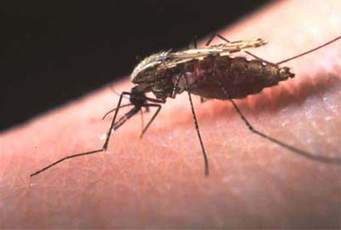
The number of malaria cases is expected to rise as a result of travel during the Easter Holidays and the recent widespread rainfall across Southern Africa, says the National Institute for Communicable Diseases.
“Travellers to high transmission areas in South Africa, as well as to the neighbouring countries, are advised to take precautions against being bitten by mosquitoes through the meticulous use of repellents containing DEET, covering bare skin after dark if outside, closing insect screens on doors and windows, and using fans or air conditioners, if available,” the National Institute for Communicable Diseases said in a statement on Tuesday.
Malaria transmission areas have been identified as the north-eastern parts of the country, covering Mopani and Vhembe districts of Limpopo Province, and the western parts of the Waterberg district (Thabazimbi and Lephalale areas).
Other areas of high transmission risk include the Lowveld of Mpumalanga Province, including the Kruger National Park and surrounds, and the northern KwaZulu-Natal Province-Mozambique border.
“Travellers can also consult their doctors, clinics or pharmacists for anti-malarial chemoprophylaxis. Current recommended chemoprophylactic medications include doxycycline or atovaquone-proguanil, which are available without prescription, but the healthcare worker needs to advise the best option for each individual,” National Institute for Communicable Diseases said.
Travellers should be note that whilst these medications are very good at preventing malaria, they are not 100% effective.
All travellers, whether travelling to low or high-risk areas are advised to be aware of the malaria symptoms of fever, chills, sweats, headaches, nausea and vomiting, body aches and general malaise.
They need to report to their nearest health facility or doctor if they suspect that they may have contracted malaria, even if they have used the preventive measures listed above.
SAnews.gov.za
https://www.africaprimenews.com/2017/12/21/environment/60m-at-risk-of-sleeping-sickness-in-sub-saharan-africa/